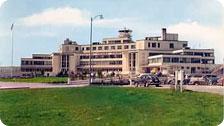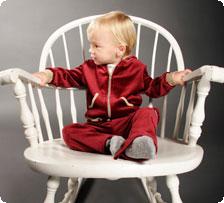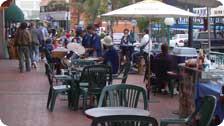by Julie Ferro
January 14, 8:30 AM. Tribhuvan International Airport, Nepal. This airport is the perfect setting for a living or waking nightmare. It looks like a bus depot in a deserted, depressed, outpost—a place you might find yourself stranded in a dream.
My sister, Virginia, and I are flying home to Los Angeles after visiting Thailand, Sri Lanka, and Nepal. Our entry city into the United States will be Seattle. We are not looking forward to almost twenty hours’ flying time. “At least we are flying out in daylight—the pilot will be able to see the mountains and not crash into them,” my sister nervously tells me. She remembers our steep landing on the short airstrip three weeks earlier, when, white knuckles gripping the armrests, she whispered “Do you think they can see to land in these mountains?”
We pass through the customs line, show our belongings, and declare we have not taken anything from strangers and have done all our own packing. The customs official is intrigued by my sister’s array of moisturizers: eye cream, throat cream, day cream, repair cream, night cream. He feels obligated to stick a rather unsanitary-looking finger into each jar. I watch my sister’s horrified face and find the process very amusing. After all, they are not my cosmetics.
I’m sad that this trip is coming to a close, but I feel something else as well. As we board the plane and file into our seats, I tell my sister, “Something is not quite right with my stomach.” Ignoring me, she says, “You have the window seat, and I have the aisle seat. We can wait and
see if someone sits in the middle, and I will switch with the person so we can sit together.”
The passenger who claims the middle seat is medium height, with a slim build, light hair, and a pale complexion. He is pleasant and mild-mannered, and appears to fade into a watercolor image when I tell my sister, “I need an airsick bag.” The next twenty hours are a silent assembly line of incoming flat, folded airsick bags, and outgoing ballooned airsick bags, occasionally interrupted by the same entreaty: “Don’t you want to sit next to your sister so you can help her? I would be very happy to switch seats with you.”
January 15, 7:30 PM. Seattle-Tacoma International Airport, USA. Fifteen airsick bags, and twenty hours later, I feel like a sack of flour, slightly emptied by a pinhole leak. Sea-Tac is clean and warm, a nice place to be whether you were caught in a snowstorm or not. Slumped on a suitcase, I’m still clutching two flat airsick bags, just in case. A friendly man approaches my sister and I and asks how we are. “We just arrived from Nepal, and my poor sister has been so sick,” Virginia tells him.
Five minutes later, two security guards escort us to an empty, glaring-white room. The friendly man is there with two unfriendly women. One guard and woman take my sister in one direction; the other guard and woman take me to a room in the opposite direction. The unfriendly woman accompanies me inside while the guard stands outside the door. I’m scared.
The woman instructs me to take my blouse off. She very carefully inspects the skin and veins on my arms, then tells me to take off my jeans and inspects the skin and veins on my legs. She is looking for needle marks, and seems unhappy when she finds nothing.
I pray I will throw up on her, and am deeply disappointed I don’t. She instructs me to get dressed and we walk back to the empty, glaring-white room, where Virginia is gushing, “This is so exciting! This has never happened to me before in all my travels. I can’t wait to tell my kids!”
We walk back to gather our luggage. “Did they tell you to take your clothes off?” I ask her. “No!” she gasps. “I told them I was a health nut and pushed up my sleeves. They didn’t even look,” she says, disappointed. Just for an instant I picture throwing up on her as we make our way to the waiting area for our final flight home.






